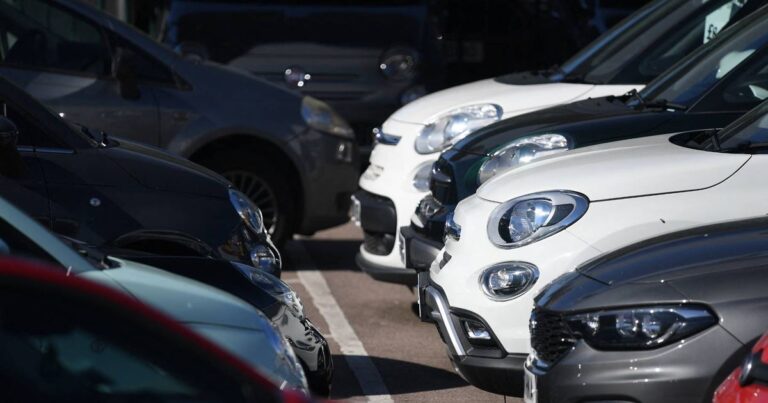The Financial Conduct Authority has confirmed it will launch a consultation on an industry-wide scheme after evidence found some motor dealers selling cars on finance were getting commission from the bank or finance house providing the loan, and that the size of the reward could be linked to higher interest rates.
Millions of people affected by a car finance scandal could be in line to share compensation worth between £9billion and £18billion after proposals for a potential payout scheme were revealed.
The Financial Conduct Authority has confirmed it will begin a consultation on an industry-wide compensation programme.
This follows evidence showing that some motor dealers selling vehicles on finance were receiving commission from the bank or finance house providing the loan, with the size of the reward potentially linked to higher interest rates.
Read more DWP ‘confirms’ four conditions to receive longer ‘ongoing’ PIP awards
The FCA has taken action following a Supreme Court ruling on Friday that provided clarity on a separate matter which could have resulted in even more people receiving compensation, reports the Mirror.
Nikhil Rathi, chief executive of the FCA, said: “It is clear that some firms have broken the law and our rules. It’s fair for their customers to be compensated.”
He added: “Our aim is a compensation scheme that’s fair and easy to participate in, so there’s no need to use a claims management company or law firm. If you do, it will cost you a significant chunk of any money you get.
“It will take time to establish a scheme but we hope to start getting people any money they are owed next year.”
What should I do now?
Hold fire for the moment, as it’ll be quite some time before any compensation scheme gets finalised and goes live.
While the specifics still require working out, the FCA stated it would strive to make any scheme “easy to participate in, without needing to use a claims management company (CMC) or law firm.”
It highlighted that employing a CMC or law firm could result in up to 30% of any compensation being eaten up by fees.
Do however lodge a complaint with your bank or finance firm if you believe you’ve been treated unfairly.
A consultation on how the scheme will operate will commence in October, and if it proceeds the initial payments will be distributed next year.
Will I qualify for compensation?
That’s difficult to determine at this point as, firstly, the consultation hasn’t yet begun and, secondly, it may hinge on individual circumstances.
However, consumer champion Martin Lewis believes up to 14 million people could qualify.
Simply because the dealer from whom you purchased your car received commission may not be sufficient to secure you money. However, if “discretionary commission arrangements” were part of the deal then there’s a strong possibility you could be entitled to compensation.
These DCAs meant the interest rate you were charged on the loan – Personal Contract Purchase or hire purchase – wasn’t set in stone and could fluctuate.
One factor was that dealers could pocket larger commissions if customers were hit with higher interest rates, despite this meaning buyers forked out more throughout the loan’s duration.
It’s most likely to affect vehicles – both brand new and used – purchased on finance between 2007 and 2021.
But the Supreme Court highlighted a crucial point, meaning even when these “discretionary” incentives weren’t present, the arrangement could still be considered unjust.
In this instance it concerned the commission’s size compared to the loan – a staggering 55%.
Consequently, other arrangements considered unfair could potentially be incorporated into the scheme, though this remains unclear.
How much compensation can I expect?
If you’re anticipating thousands, you’re probably going to be let down.
The FCA presently estimates that most individuals will likely receive under £950 in compensation.
Interest is typically added to compensation payments.
The FCA states it intends to consult on an interest rate for each year of the scheme based on that year’s average base rate plus 1%.
This would equate to roughly a simple interest rate of 3% annually.
How will the compensation scheme operate?
This is another matter the consultation must clarify. One proposal is for an opt-out scheme, where individuals wouldn’t need to take any action and would simply wait to be contacted by the relevant bank or finance company.
The other option is an opt-in scheme. The FCA states: “There are pros and cons to either approach and a range of views, which will be explored thoroughly through the consultation.”
Another factor to consider is how the compensation will be calculated. One possibility is that the payout won’t exceed the commission the dealer received.
What might the scheme cost?
The FCA believes the final cost of any compensation scheme will hinge on its ultimate design.
It estimates it’s unlikely the total bill for the entire scheme, including its operation, would be much less than £9 billion. In some scenarios, the cost could reach as high as £18 billion, though it doesn’t anticipate it will climb that high.
“A total cost midway in the range, as forecast by some analysts, is more plausible”, which would put it around £13.5 billion.
The regulator is considering the need to penalise banks without stifling their willingness and ability to lend, or increasing the cost of future car finance, which could negatively impact manufacturers and the economy.


